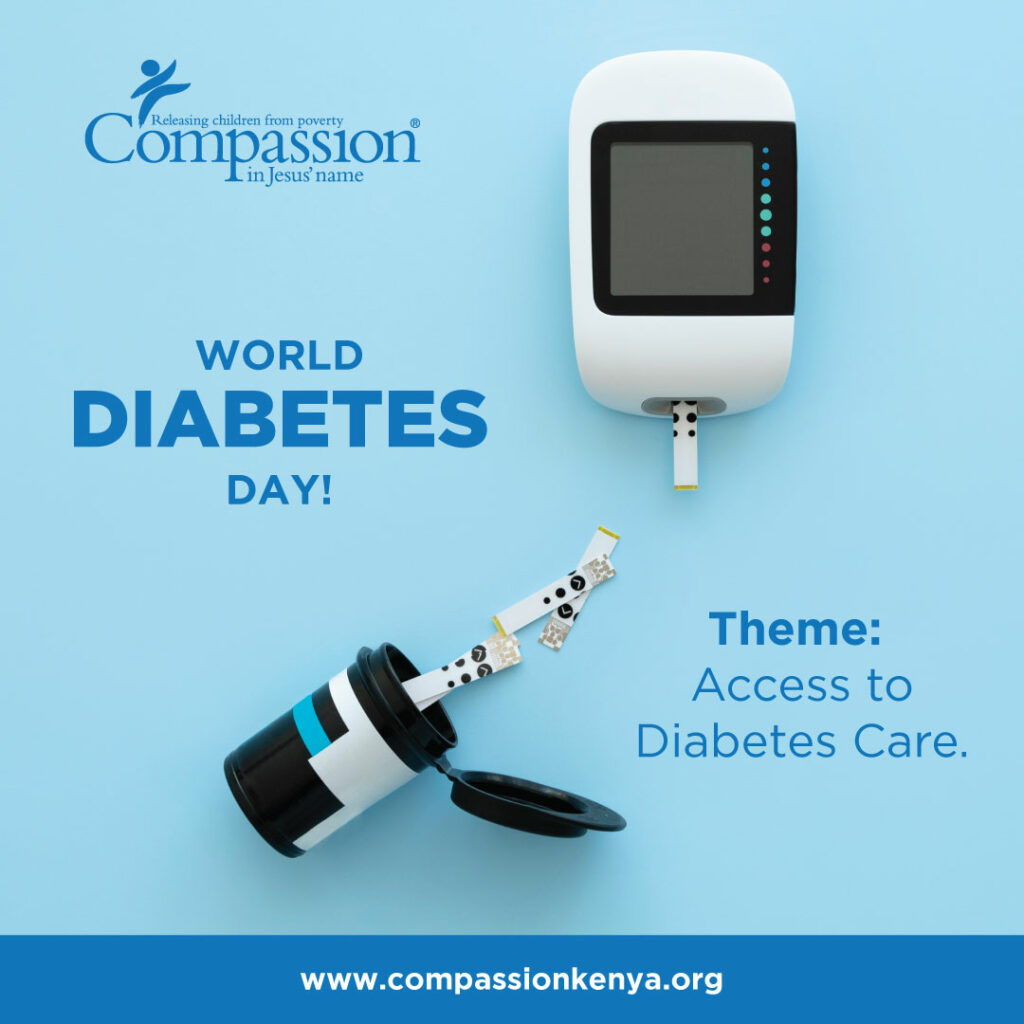
What is Diabetes?
Diabetes is a chronic (long-lasting) health condition that affects how your body turns food into energy that it needs for normal bodily functions.
Your body breaks down most of the food into sugar (glucose) and releases it into your bloodstream. When your blood sugar goes up, your pancreas releases insulin. Insulin acts like a key to let the blood sugar into your body’s cells for use as energy.
With diabetes, your body doesn’t make enough insulin or can’t use it as well as it should. When there isn’t enough insulin or cells stop responding to insulin, too much blood sugar stays in your bloodstream. Over time, that can cause serious health problems, such as heart disease, vision loss, and kidney disease. There isn’t a cure yet for diabetes, only management.
Types of Diabetes
There are three main types of diabetes: type 1, type 2, and gestational diabetes (diabetes while pregnant).
Type 1 Diabetes
Type 1 diabetes is thought to be caused by an autoimmune reaction (the body attacks itself by mistake), often in infancy. This reaction stops your body from making insulin. Approximately 5-10% of the people who have diabetes have type 1. Type 1 diabetes can, however, be diagnosed at any age, and symptoms often develop quickly / abruptly. If you have type 1 diabetes, you’ll need to take insulin every day to survive. Currently, no one knows how to prevent type 1 diabetes.
Type 2 Diabetes
With Type 2 diabetes, your body doesn’t use the available insulin well and, therefore, can’t keep blood sugar at normal levels. About 90-95% of people with diabetes have type 2. It often develops over many years and is usually diagnosed in adults (but more and more in children, teens, and young adults). You may not notice any symptoms, so getting your blood sugar tested is important if you’re at risk. Type 2 diabetes can be prevented or delayed with healthy lifestyle changes, such as:
- Maintaining the right weight.
- Eating a healthy, balanced diet.
- Living an active lifestyle.
Gestational Diabetes
Gestational diabetes develops in pregnant women who have never had diabetes. If you have gestational diabetes, your baby could be at higher risk for other health problems. Gestational diabetes usually goes away after your baby is born. However, it increases your risk for type 2 diabetes later in life. Your baby is more likely to have obesity as a child or teen and develop type 2 diabetes later in life if you have gestational diabetes.
WORLD DIABETES DAY
The theme for World Diabetes Day is Access to Diabetes Care. The slogan for the 2023 campaign is: Know Your Risk, Know Your Response.
The 2023 campaign focuses on the importance of knowing your risk of type 2 diabetes to help delay or prevent the condition. It highlights the impact of diabetes-related complications and the importance of having access to the right information and care to ensure timely treatment and management.
- For people at risk of type 2 diabetes, knowing your risk and what to do is important to support prevention, early diagnosis, and timely treatment.
- For people living with diabetes, awareness, and access to the correct information and best available medicines and tools to support self-care is vital to delay or prevent complications.
- For healthcare professionals, access to sufficient training and resources is required to detect complications early and provide the best possible care.
Compassion’s Support in the fight against Diabetes
Every month, we support 25 diabetic participants to access diabetes medication and care. This figure excludes those who are under care for diabetes-related complications. Due to the Chronic nature of the illness, diabetic participants are encouraged to register for Health Insurance (NHIF) to help defray the costs of constant and long-term medical care. We also offer ongoing health education to 134,198 registered participants through the 467 church partners.
We believe that:
- Early detection is key! Diabetes can be a silent disease. Normalize monitoring blood sugar.
- Everyone with diabetes is supported to get their doses of Insulin and trained on correct use.
- Everyone with diabetes is at risk of going blind. A yearly eye check-up is a requirement.
- Controlling blood sugars, blood pressure, and cholesterol levels prevents complications.
- Everyone with diabetes should avoid injuries because of reduced wound-healing ability.

